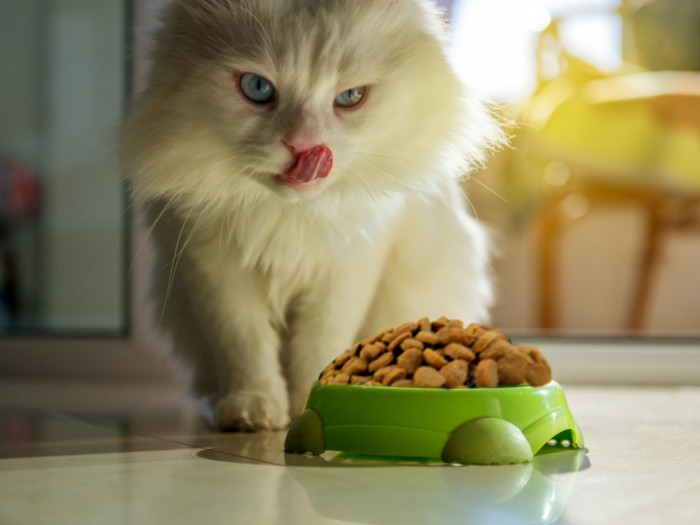The use of probiotics for cats is an increasingly popular way to improve the gastrointestinal health of your feline friends. Cats are different from many animals, as they have extremely short digestive tracts, and are unable to digest fiber, which can help to promote a healthy digestive system. Therefore, probiotic supplements may sometimes be essential, particularly to reduce symptoms of diarrhea.
What are Probiotics for Cats?
Probiotics for cats are similar to probiotics for humans, in that they are intended to promote the growth of healthy bacteria in the gut and optimize digestive health. However, you shouldn’t assume that human foods that contain probiotics are safe for cats, such as yogurt or sauerkraut. Instead, choose a cat food that includes probiotics, or purchase probiotics designed for the digestive tract of cats. [1]
Dosage
The appropriate dosage for cats is between 10 and 40 billion CFU (colony-forming units). Cats can have small amounts of human probiotics, such as yogurt, but many cats are lactose intolerant, so species-specific probiotics are recommended. [2]

What does your cat like to eat? Photo Credit: Shutterstock
Probiotics for Cats Benefits
There are many benefits for cats who take probiotics, including:
- Improved immune system
- Lower risk of diarrhea
- Improved digestive tract health
- Soothe inflammatory bowel disease
- Prevent chronic diseases
For those cats who often experience constipation or vomiting, bolstering their gut with cat probiotics is a good choice. Similar to humans, a significant amount of the immune system operates out of the gut, so chronic disease and inflammation can be prevented. [3]
How to Give Probiotics to Cats?
- As mentioned, the best way to give probiotics to cats is to include them in their treats or wet food, but hide them well, as the taste is not always pleasant.
- You can also hold your cat’s mouth open and encourage them to swallow the probiotic to ensure they consumed it.
- Probiotic pastes can also be mixed into your cat’s food. [4]
- The last resort is a probiotic injection, administered by your veterinarian.
Side Effects
The primary side effects of cat probiotics include a return to negative gastrointestinal symptoms once the use of probiotics is stopped. Furthermore, be sure to only use probiotics from trusted sources, as many products contain additives and filler that may not be beneficial for your pet’s health.
